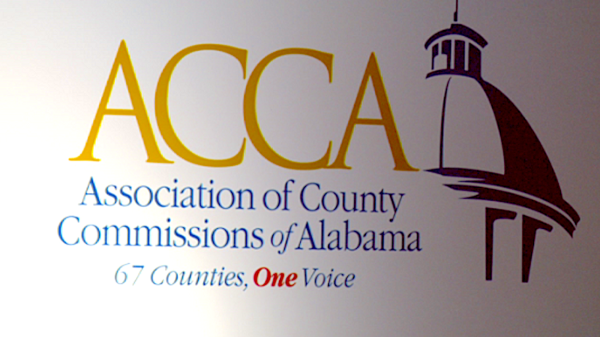By Brandon Moseley
Alabama Political Reporter
A bald eagle was found with gunshot wounds to both its wing and head in Tuscaloosa County. The United States Fish and Wildlife Service is offering a $2500 reward for information that results in the conviction of the person or persons responsible.
The wounded bald eagle was found next to the Sipsey River on Upper Columbus Road. X-rays revealed that it had been shot. The eagle is now recovering from its wounds at the Southeastern Raptor Center in Auburn, AL on the campus of Auburn University. The eagle will be released back to the wild when it fully recovers from its injuries.
If you have any information about this case contact Special Agent John Rawls with U.S. Fish and Wildlife Service in Millbrook, AL at 334-285-9600, email John_Rawls@fws.gov or call Alabama Operation Game Watch 1-800-272-GAME (4263)
Although native to the state, Bald Eagles stopped nesting in the state of Alabama in 1949. In 1984, the Bald Eagle Restoration Project was begun by the Nongame Wildlife Program of the Department of Conservation and Natural Resources to restore a nesting population of bald eagles into the state. It took 7 years of releasing eagles into the wild for the first successful Bald Eagle nest in 1991. In 1995 bald eagles were upgraded from the endangered species list to the threatened species list and in 1999 the species was removed from the threatened species list. In 2006 there were 77 bald eagles nest in the state. Since 1991 over 500 bald eagles have hatched in the state. Today there are over 4500 adult breeding pairs of bald eagles in the United States.
Bald eagles live about 30 years and mate for life. Bald Eagles lay their eggs in December and January. Incubation times is 32 days. The newly hatched eagles need three months of care before they can fly. Bald eagles eat fish; but also rats, squirrels, opossums, rabbits, raccoons, snakes, turtles, and even carrion.
If you find a sick or injured raptor bring it to the Auburn University College of Veterinary Medicine Small Animal Clinic 24 hours a day 7 days a week. Their phone number is (334) 844-6347 Auburn’s Southeaster Raptor Center treats 200- 275 raptors a year. Raptors include eagles, owls, hawks, falcons, vultures, osprey, harriers, and kites.
Even though bald eagles are no longer listed on the endangered species list, they are still protected by the 1940 Bald and Golden Eagle Protection Act. Taking, possessing, selling, purchasing, offering to sell, exporting or importing a bald or golden eagle dead or alive or its parts without a permit is illegal. It is a violation of federal law to “shoot, shoot at, poison, wound, kill, capture, trap, collect, molest, or disturb” a bald or golden eagle. The criminal penalties are a fine up to $250,000 and imprisonment of up to 2 years.
To read the press release:
http://www.fws.gov/southeast/news/2012/012.html
The mission of the U.S. Fish and Wildlife Service is working with others to conserve, protect and enhance fish, wildlife, plants and their habitats for the continuing benefit of the American people. For more information on our work and the people who make it happen, visit:






















































